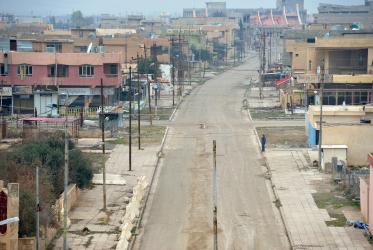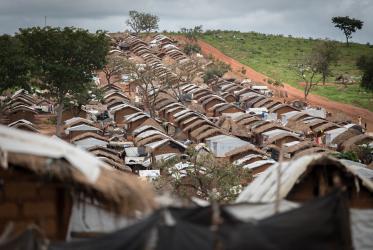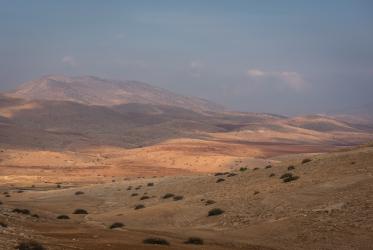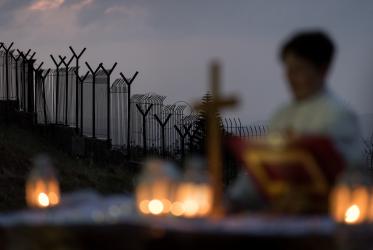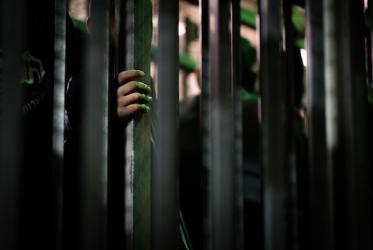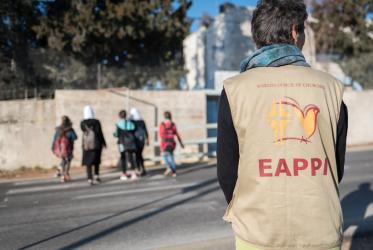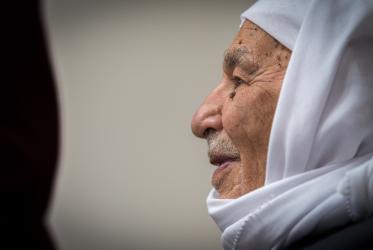Displaying 81 - 100 of 177
22 October 2020
“Stand together praying for just peace in Palestine and Israel”
14 September 2020
Webinar on Middle East racism: “Never lose hope”
28 November 2019
World Week for Peace highlights humanity and equality
15 September 2019
Dr Saïd Ailabouni: God is on the side of rejected, oppressed, occupied
12 September 2019
With continuous presence and just peace at heart
25 April 2019
Shabbat dinner ‘helps humanize two sides of the story’
27 March 2019
Human fraternity is a divine calling, says WCC general secretary
03 February 2019



